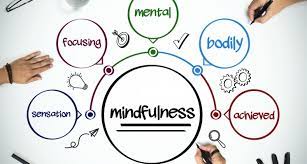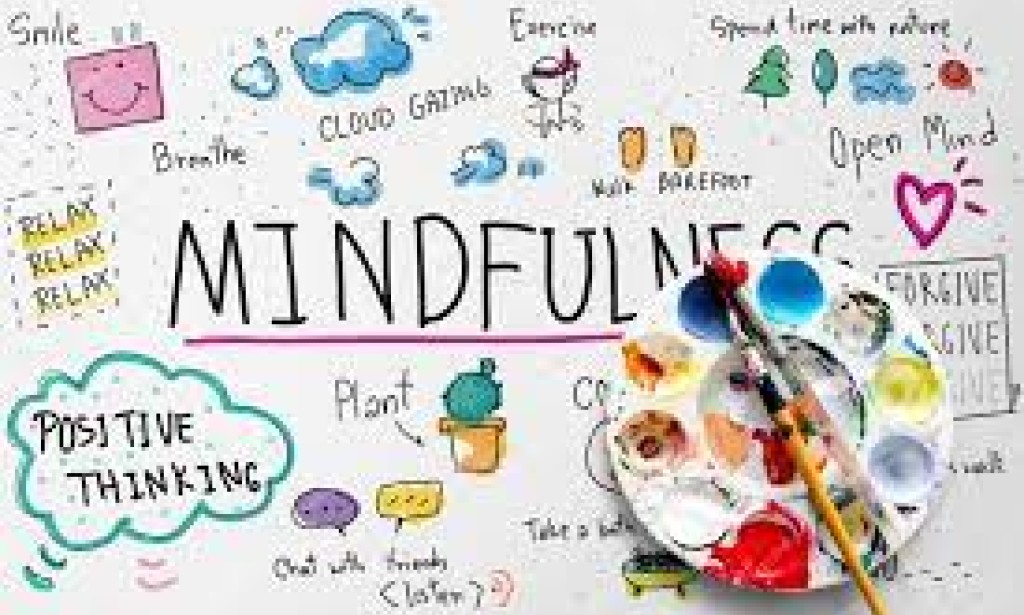Understanding Mindfulness:
At its core, mindfulness is the practice of being fully present, paying attention to the current moment without being overwhelmed or carried away by thoughts or distractions. Jon Kabat-Zinn, a pioneer in mindfulness, describes it as "paying attention in a particular way: on purpose, in the present moment, and non-judgmentally."

Components of Living Mindfully:
Present Moment Awareness: Mindfulness encourages individuals to focus on the 'now,' acknowledging sensations, feelings, and thoughts without attaching undue importance or judgment.
Cultivation of Gratitude: A mindful lifestyle often involves fostering gratitude for simple pleasures, fostering a deeper appreciation for life's blessings regardless of their scale.
Mindful Breathing and Meditation: Techniques such as mindful breathing exercises and meditation help anchor individuals in the present, fostering a calm and centered state of mind.
Self-Compassion and Acceptance: Embracing oneself with kindness and self-compassion, accepting thoughts and emotions without harsh self-criticism or judgment, is integral to mindfulness.
Benefits of Mindful Living:
Stress Reduction: Mindfulness has shown to alleviate stress by fostering a greater sense of calmness and improving resilience in facing challenges.
Enhanced Emotional Well-being: Practicing mindfulness can lead to improved emotional regulation, reducing feelings of anxiety and depression.
Improved Focus and Concentration: By training the mind to be present, mindfulness enhances concentration, aiding in better decision-making and cognitive abilities.
Better Relationships: Mindful living fosters empathy and better communication, enriching relationships by promoting deeper connections with others.
Incorporating Mindfulness into Daily Life:
Mindful Eating: Paying attention to the sensations while eating, savoring each bite, and being aware of the nourishment provided.
Mindful Movement: Engaging in activities like yoga, tai chi, or simply taking a mindful walk, focusing on bodily sensations and movements.
Mindful Work: Applying mindfulness to work environments by taking brief breaks for deep breathing, maintaining focus on tasks, and managing stress effectively.
Challenges in Adopting a Mindful Lifestyle:
While the benefits are profound, adopting a mindful lifestyle can present challenges. Distractions, habitual patterns, and the fast-paced nature of modern life often hinder sustained mindfulness practices. Cultivating a regular routine and overcoming these barriers may take time and persistence.
Conclusion:
Living with awareness through a mindful lifestyle is a journey of self-discovery, fostering a deeper connection with oneself and the world. Embracing mindfulness involves consistent practice, patience, and a gentle acceptance of the ebb and flow of life's experiences. As individuals immerse themselves in the present moment, they unravel the richness of life, finding tranquility, joy, and fulfillment in each passing moment.
- Mindful Communication: Being present and fully engaged in conversations, listening actively without planning responses fosters deeper connections.
- Mindful Technology Use: Using technology consciously, setting boundaries, and taking breaks to avoid mindless scrolling or distraction.
- Mindful Parenting: Being fully present with children, engaging in activities without distraction, and responding rather than reacting to their needs.
- Mindful Sleeping: Creating a bedtime routine, practicing relaxation techniques, and being aware of bodily sensations to promote restful sleep.
Mindfulness in Stress Management:
- Mindful Breathing Techniques: Employing techniques like box breathing, belly breathing, or guided breath meditations to alleviate stress.
- Body Scan Meditation: Systematically scanning the body to identify and release tension, promoting relaxation and stress reduction.
- Mindfulness-Based Stress Reduction (MBSR): Participating in structured programs integrating mindfulness meditation and yoga to manage stress.
Mindfulness in Emotional Well-being:
- Acceptance and Non-Judgment: Cultivating a mindset of acceptance towards emotions, allowing them to exist without labeling them as good or bad.
- Mindful Journaling: Reflecting on thoughts and emotions through journaling, observing patterns, and gaining insights into one's mental landscape.
- Compassion Meditation: Practicing loving-kindness meditation to foster compassion for oneself and others, enhancing emotional well-being.
Mindfulness and Personal Growth:
- Mindful Goal Setting: Setting intentions mindfully, aligning actions with values, and staying present during the pursuit of goals.
- Mindful Self-Care: Engaging in activities that nourish the mind, body, and spirit, such as meditation, hobbies, or spending time in nature.
- Mindfulness in Decision-Making: Making conscious choices by being aware of intentions, consequences, and aligning decisions with values.
Mindfulness in Relationships:
- Empathetic Listening: Practicing active listening without judgment or interruption, fostering understanding and empathy in relationships.
- Mindful Conflict Resolution: Approaching conflicts with openness and understanding, focusing on resolution rather than escalation.
- Gratitude Practices in Relationships: Expressing gratitude and appreciation to loved ones mindfully, strengthening bonds and connections.
Mindfulness and Work/Productivity:
- Mindful Time Management: Prioritizing tasks mindfully, avoiding multitasking, and dedicating focused time to each task.
- Mindfulness in Leadership: Leading with empathy, active listening, and creating mindful work environments that support employee well-being.
- Mindful Transitions: Taking mindful pauses between tasks or meetings to reset and refocus attention.
Mindfulness, as a lifestyle, extends its influence into various facets of life, offering a path towards greater self-awareness, resilience, and fulfillment. Integrating mindfulness practices into daily routines empowers individuals to navigate life's challenges with clarity, compassion, and a deep appreciation for each moment.



You must be logged in to post a comment.